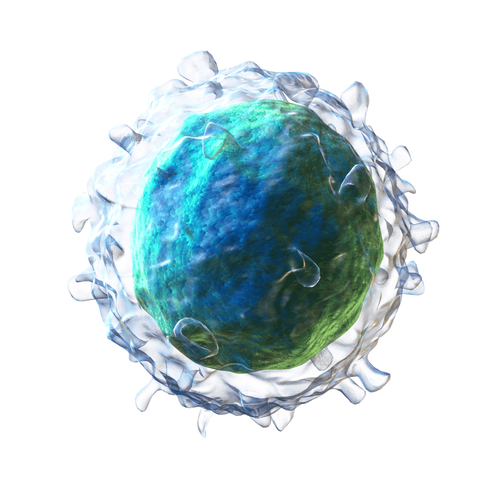This is an automatically translated article.
Nasopharyngeal cancer is in the group of ten most common cancers in Vietnam, this disease is common in men aged 40 - 60 years. If detected early, throat cancer can be cured with radiation therapy alone or in combination with chemotherapy. Unfortunately, most cases are discovered late. To be able to detect early, you need to know the symptoms of throat cancer.
1. What is nasopharyngeal cancer? Nasopharyngeal cancer is a common malignancy in the head and neck region. Like other cancers, advanced nasopharyngeal cancer can spread to other parts of the body, making treatment more difficult and leading to a higher mortality.
Although the cause of oropharyngeal cancer is not clear, scientists say a number of factors are thought to increase a person's risk of oropharyngeal cancer, including:
Regularly exposed to smoke and dust, in poorly ventilated environments, exposed to chemicals (especially aromatic hydrocarbons), or eat a lot of salted fish and fermented foods (melon, eggplant, fish sauce). )... Smoking Drinking a lot of alcohol Genetics Geographic factors: Nasal cancer often occurs with a high rate in Southeast Asian countries, southern China but less common in European and American countries. EBV virus infection
2. Clinical symptoms of nasopharyngeal cancer Nasopharyngeal cancer is the most common cancer among the malignancies in the head and neck area. This disease often progresses silently, the symptoms are not specific and the tumor is deep inside, so it is difficult to access the examination.
Typical nasopharyngeal cancer symptoms include:
Sore throat: As nasopharyngeal cancer grows, it can compress lymph nodes and cause frequent sore throat, even when swallowing saliva. The location of the tumor in the nasopharynx makes swallowing food more difficult, causing the patient to feel pain and discomfort. At the same time, food also easily adheres to the tumor, making the patient more susceptible to choking. However, the symptoms of a sore throat are easy to confuse with a respiratory infection. The difference is that nasopharyngeal cancer often causes burning pain on one side of the throat, and it doesn't respond to conventional medications.
Nasal congestion: Ear - nose - throat are three parts that are closely related to each other, so nasopharyngeal cancer also causes frequent nasal congestion. This symptom usually appears in the early stages of the disease, accompanied by episodes of mucus secretion and bleeding. So if you have a blocked nose on one side with repeated nosebleeds for a long time, you need to go to the doctor soon. Swollen lymph nodes in the neck: Statistics show that swollen lymph nodes in the neck are the typical and most common symptom of nasopharyngeal cancer. Up to 60-90% of patients with nasopharyngeal cancer have enlarged lymph nodes in the neck or under the jaw. These lymph nodes do not disappear but grow larger and larger, causing pain in the patient. This symptom may indicate that nasopharyngeal cancer has begun to spread and metastasize to other organs, when it is more difficult to treat the disease.

Triệu chứng ung thư vòm họng điển hình bao gồm đau rát họng thường xuyên
The biggest difference to suspecting that nasopharyngeal cancer is that the symptoms last longer and don't respond to treatment. So if you experience these typical symptoms and they last for 2-3 weeks, you need to see a doctor as soon as possible.
3. When there are symptoms of nasopharyngeal cancer, what to do? When you have the above symptoms and you do not know the exact cause of your symptoms, see a doctor immediately. The clinical symptoms of nasopharyngeal cancer are the basis for the doctor to make a preliminary assessment of the risk of disease as well as the degree of disease progression. So please fully inform the signs you encounter, medical history, family history, ... to your doctor.
To diagnose nasopharyngeal cancer, the doctor needs to perform a laryngoscopy to assess the extent of physical damage as well as look for signs of disease. If the throat area has abnormal signs, it is necessary to take a biopsy sample for testing to check for cancer cells.
Commonly used biopsy methods are:
Fine-needle aspiration: The doctor will use a thin needle inserted directly through the skin into the suspected area to collect tumor cells or fluid for testing. Conventional Biopsy: The doctor will perform minor surgery, taking a tissue sample for examination through an incision in the throat area. Endoscopic biopsy: This method is often used with patients with nasopharyngeal cancer, the doctor will take a tissue sample for testing during the throat endoscopy. To assess the condition, determine the stage of nasopharyngeal cancer, the doctor may ask you to do other tests such as: CT Scan, MRI, X-ray,...

Nghẹt mũi là triệu chứng ung thư vòm họng điển hình
4. Can throat cancer be prevented? To prevent oropharyngeal cancer, you need to maintain a healthy lifestyle and a scientific diet:
Don't smoke: There are many scientific studies that have proven that not smoking can reduce significant risk of oropharyngeal cancer. If you are a smoker, quit smoking as soon as possible to ensure your health. Limit the use of alcohol, beer and other alcoholic beverages. Do not eat a lot of foods processed by fermentation such as salted meat, salted eggplant, pickles, etc. Do not eat food when it is too hot to avoid causing damage to the pharynx. Exercise regularly to improve health. The symptoms of nasopharyngeal cancer can be difficult to identify in the early stages of the disease because many of the symptoms are similar to those of common ENT diseases, so it is easy for patients and even doctors to be subjective and give up. via.
Vinmec International General Hospital is one of the hospitals that not only ensures professional quality with a team of leading medical professionals, modern equipment and technology, but also stands out for its examination and consultation services. comprehensive and professional medical consultation and treatment; civilized, polite, safe and sterile medical examination and treatment space.
Please dial HOTLINE for more information or register for an appointment HERE. Download MyVinmec app to make appointments faster and to manage your bookings easily.













